BBVA and sustainability in Latin America
- BBVA invested €40.6 million in sustainable and social programs in Latin America in 2019
- In its 13 years of service, the BBVA Microfinance Foundation has helped more than five million people
- BBVA delivers innovative financial education programs in Mexico
- BBVA Argentina is the first private bank to launch a line of personal eco-loans
- BBVA in Colombia closes a line of green guarantees to build the Bogota metro
- In Peru, BBVA leads the way in using the Environmental Ministry’s carbon footprint tool
- Sustainable finance in the region: BBVA, breaking new ground with deals in the wholesale market
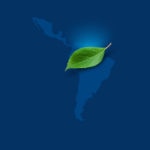
BBVA allocated €40.6 million to sustainable and social programs in Latin America in 2019, representing 31.8 percent of the Group’s total investment across its entire footprint. More than 4.5 million people in the region have benefited from these programs. It has also firmly established its position as a leader of innovation in Latin America’s sustainable finance market.

As part of its commitment to improving the social, economic, and environmental conditions in the communities it serves, the bank runs various programs in Latin America aimed at encouraging the inclusion of all people in the financial system, promoting access to credit, supporting entrepreneurs, and advocating education as a primary tool for advancement, thereby contributing to a more sustainable society.
Digitization and sustainability
Digitization and sustainability are key factors for unleashing the potential of the banking sector vís-a-vís the UN’s Sustainable Development Goals and the objectives set forth in the Paris Agreement. BBVA Group has embraced these factors and actively champions them in Latin America and more widely across its international footprint.
Financial inclusion is one of the fundamental areas to be addressed by digitization, if banking is to act as a catalyst for sustainable development. Addressing society's new challenges will depend critically on the use of big data (at an aggregated level) so the data that is available can be effectively used on behalf of our social and sustainable initiatives.
The Microfinance Foundation
The BBVA Microfinance Foundation's mission is to support the sustainable development efforts of entrepreneurs with limited resources. By virtue of its contribution to the region's development, it has recently been recognized by the OECD as the largest philanthropist in Latin America. The foundation works in five countries (Colombia, Peru, the Dominican Republic, Chile, and Panama) and during its 13 years of existence, it has assisted more than five million people with contributions in excess of $14.5 billion.
The Microfinance Foundation's strategic priorities are: measuring social impact, environmental sustainability, digitalization, the empowerment of women, and human capital. It has proactively aligned itself with the United Nations Sustainable Development Goals (SDGs), and its work directly impacts 12 of the 17 SDGs.
Bancamía, the BBVA Microfinance Foundation organization in Colombia, received the 2020 National Andesco (National Association of Public Service and Communications Companies of Colombia) Award for environmental sustainability. The award recognizes the bank’s commitment to sustainability and the balance between economic growth, social inclusion, environmental management, and the responsible use of the planet’s natural resources.
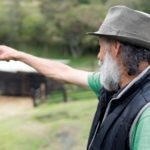
Entrepreneurship
BBVA has various programs that promote entrepreneurship. The work of the Microfinance Foundation benefited 2.2 million people in 2019. As a complement to the foundation’s initiatives, the BBVA Momentum program assisted 2,134 people in the region in 2019, providing entrepreneurs in Mexico and Colombia access to training, strategic mentoring, financing, networking, and publicity, thus contributing to the growth of their business ventures.
BBVA, pioneering the region's financial education
As part of its mission to help people make better decisions on behalf of their financial health, BBVA delivers its financial education program via workshops offered both online and face-to face in fixed and rotating classrooms. In 2019 the bank provided training to more than 792,879 people (including children, young people, and adults) as well as to the management personnel of the region's small and medium sized companies, helping them acquire various essential financial skills. These programs are standard-bearers in Mexico, Colombia, Argentina, and Venezuela.
BBVA Mexico is a leader in the area of financial education training for individuals and companies in the region. For more than ten years, BBVA Mexico has been developing workshops that have contributed to the acquisition and reinforcement of financial concepts related to savings, loans, insurance, investments, and the appropriate use of digital channels. This experience has been exported to all the countries within the BBVA footprint.
According to information recently published in the Argentina country Annual Report, the program reached more than 1,080 students throughout 2019, thus bringing the number of young people directly benefiting from the program since its inception to 13,375 young people, with more than 53,500 having received indirect benefits. Driven by its goal to help improve the financial health of Argentines, BBVA also developed a free-to-access 100 percent online financial education platform, available to anyone interested in picking up financial skills and knowledge.
In addition, BBVA Colombia delivered personal finance training to 141,713 people in 2019, the same year they trained employees from 347 public and private companies from 47 cities across the country.
In Venezuela, BBVA's efforts helped 2,031 people. First, together with the Andrés Bello Catholic University (UCAB) the bank held an in-person workshop on “Economics for Children and Adolescents” which aimed to familiarize students with economic and financial concepts. A course on personal finances was also delivered. Also, 266 young people between the ages of 18 and 26 received online training on the responsible use of money. Lastly, financial education content for the different segments of the population is available on the Foundation’s website.
In Peru, the BBVA Foundation has spearheaded the program “Tu dinero, tu amigo” (“Your money, your friend”) in order to help provide a better understanding of financial products and services, via educational seminars delivered across the country. Business and institutional collaborators alike, clients and non-clients of the bank, have participated, receiving training that contributes to the development of skills that help improve money management. Last year more than 1,000 participants from thirty companies received the training. The BBVA Foundation in Peru is currently developing a virtual version of the program, in line with our modern reality.
Education and scholarships
Similarly, with its scholarship programs, BBVA supports the education of the most vulnerable children and young people in Mexico, Colombia, Peru, Uruguay, and Venezuela. In 2019, the bank contributed to UN SDG #4 by helping 190,881 primary, secondary, high school and university students in the countries across its footprint.
Financial inclusion
Greater financial inclusion has a positive impact on a country's sustained economic well-being and growth. BBVA bases its model of inclusion on the development of long-term responsible and sustainable businesses; the use of new, digital technologies; more products and services offered by online platforms; and low cost, innovative financial solutions designed for this segment.
Digital financial technology, specifically the increased use of smartphones, has given more people access to financial services, at a lower cost and with less risk. BBVA has led the digitization of the region’s financial services, and in 2019 it continued to put new digital technologies within everyone's reach by increasing the number of products and services available on digital platforms, thereby facilitating access to banking services for previously unbanked segments of the population.
In Mexico, work is underway to jump-start the ‘bankification’ of the debanked who receive remittances from families abroad, in addition to further digitizing the segment, which already represents 23 percent of total digital users. In Colombia, customers can make transfers at no cost from mobile devices and the web. The objective is to remove barriers and promote greater access to the financing system and digital banking. And in Peru, the BIM e-wallet continues to gain strength, offering new features like utility payment services and signposted establishments.
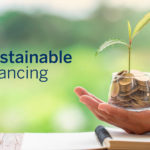
BBVA, setting the bar for sustainable financing in the wholesale market
BBVA leads the way in Latin America in the promotion and delivery of sustainable financing solutions. Its activity encompasses green and/or social bonds; green, social, and sustainable loans; and the development of an industry-leading sustainable transactional product framework that allows companies to certify their short- and medium-term financing deals as green, social and/or sustainable.
BBVA has been a clear leader and dominant player in the sustainable loan business. Today it is one of the most active participants on the world stage in this area, and a leader in Spain. In 2019, BBVA took the helm of the sustainable financing market. By the end of May 2020, BBVA had led five additional deals of this type.
Aligned to this commitment, in 2018 BBVA Mexico became the country’s first private bank to issue a green bond totaling 3.5 billion Mexican pesos ($168 million). Funds raised by this bond will be allocated to financing projects related to energy efficiency, sustainable transportation, water and waste management, and renewable energy. BBVA signs the first green corporate loan in Latin America
In the world of sustainable loans, BBVA broke new ground in Latin America by successfully closing the first green corporate loan in the region, specifically in Mexico. BBVA acted as the global coordinator, the joint bookrunner, the green agent, and the administrative agent for the $400 million syndicated green loan for Iberdrola México.
Also in Mexico, BBVA acted as the sole sustainability agent for the first sustainable revolving credit facility (RCF) signed with Fibra Uno (FUNO) in Latin America. This agreement represents a significant accomplishment given that it was the first voluntary sustainable agreement made in the region by a real estate company, in addition to being the first syndicated deal in Latin America subject to the Sustainability-Linked Loan Principles.
World Bank Group member, the International Finance Corporation announced that it has granted BBVA Leasing México a $116.5 million line of credit to finance sustainable assets.
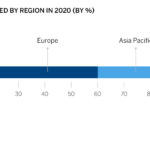
Until June 2020.
In addition, BBVA was the first bank in South America to sign a bilateral green loan in Peru. The deal was signed with Ferreycorp, a leader in the Peruvian market in selling capital assets and service delivery. The loan, totaling $70 million, is linked to Ferreycorp’s corporate governance, social and environmental sustainability performance indicators, which were certified by the independent rating agency, Vigeo Eiris.
BBVA was the first bank in South America to sign a bilateral green loan in Peru.
In Colombia, BBVA announced a green guarantee facility for $90 million on behalf of China Harbor Engineering Company Limited to build Bogota's metro line 1. The deal is the largest infrastructure project in this South American country. The metro line, operating 30 trains with a 72,000 passenger per hour capacity, will contribute to improved levels of equality in the capital of Colombia given that 88 percent of the line travels through low-income districts that will benefit from the improved transportation links. It will also have a positive impact on emission reductions because the public transportation system is 100 percent electric, sustainable and green-certified in accordance with the BBVA framework for sustainable transactional banking.
This first phase of the project will provide transportation for more than a million passengers a day and will be one the most extensive on the continent, surpassing transportation lines in cities such as Quito (22 kilometers), Sao Paolo (22 kilometers), and Santiago de Chile (19.3 kilometers).
Another notable example in Colombia was the 140 billion Colombian peso social line of credit for Nestlé. This is the country’s first deal subject to the concept of sustainable transactional banking, an initiative focused on supporting businesses and industries in establishing strategies to curb climate change and promote sustainable development.

Prototipo del futuro metro de Bogotá.
Also in Colombia, BBVA has recently financed the environmental reconstruction of the Fúquene lagoon. Located in Cundinamarca, Fúquene is the second largest lagoon in the country and has been subject to over 200 hundred years of desiccation.
In Argentina, BBVA has recently become the first financial institution in the country to deliver a certified sustainable loan under the sustainable transactional banking framework. The loan recipient, medical company Medicus, will use the funds to purchase equipment to combat COVID-19. The bank also approved a green line of credit for the La Matanza-Riachuelo riverbed sustainable development project, which seeks to minimize the negative environmental impacts occurring on the southern edges of Buenos Aires and the greater province.
Providing guidance and advice to the SME and retail market
BBVA also provides its private companies with the best sustainable solution alternatives. Specifically, in Argentina, BBVA was the first private bank to launch a new line of personal loans, called “eco loans,” which are designed to help finance sustainable assets that contribute to the care of the environment and are aligned to the UN’s SDG #7, providing lower interest rate loans for electric powered vehicles, bicycles, scooters, and certified energy efficient appliances.
The bank’s Argentine unit also recently announced a green line of loans for small and medium-sized enterprises. The funds must be used for financing (a) social activities: social housing, the creation of sustainable employment, food security, reinforcement of social progress; or (b) entrepreneurial activities that support sustainability or financial inclusion: renewable energy, energy efficiency, pollution prevention, management of natural resources, clean transportation, wastewater management, and ecological buildings.
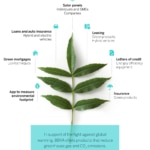
Another example of a sustainable end-user product is the “mi vivienda verde” (“my green home”) in Peru, which encourages and promotes access to homes that include sustainability criteria in their design and construction. BBVA Peru’s involvement in developing these products goes beyond financing, which the company complements with advisory services.
In Uruguay, BBVA will finance the purchase of electric vehicles, with loans of up to 60 months. This is a new lending product specifically launched to finance electric vehicle purchases and thereby contribute to a more sustainable future. The car loan offered by BBVA covers electric vehicles with a financing term of up to 60 months, which includes a cost free account package. The applied interest rate is bonificada and the financing currency can be in pesos, indexed units, or dollars. Also in Uruguay, BBVA has provided financing to convert most of the country’s municipal buildings to LED technology.
All these agreements fall under the framework of the bank’s Pledge 2025, BBVA’s commitment to secure €100 billion in sustainable financing between 2018 and 2025 as part of its strategy to fight climate change. By June 2020, the bank had already raised €40 billion, representing 40 percent of the target commitment.
Finally, BBVA's socially responsible investing (SRI) activity in Latin American totals €34 billion.

The initiatives mentioned above are complemented by the sustainability and environmental efforts made by all BBVA banks across the region as part of the company’s Global Eco-efficiency Plan, which aims to reduce the BBVA environmental footprint by cutting its consumption of energy, water, paper and other resources.
Compared to the previous year, in 2019 BBVA Group made significant progress with its regional environmental footprint reflecting an eight percent reduction in CO2 emissions. The measures BBVA put in place to reduce its environmental footprint in 2019 in Latin America were:
- Environmental property management: the bank’s environmental management systems in Argentina, Colombia, Peru, Uruguay and Mexico received ISO 14.001:2015 certification.
- LEED certification was granted to the bank headquarters buildings in Argentina and Mexico.
- Energy and climate change: in Mexico, the energy consumed from renewable sources reached 23 percent. Furthermore, in Mexico 65 percent of the bank’s energy consumption is supplied by virtue of a long-term power purchase agreement. Uruguay has also opted for the self-generation of renewable energy at its sites by installing solar photovoltaic and solar thermal panels.
- Paper and waste: The #BBVAsinplastic (BBVA without plastic) project was launched with the goal of eliminating most single-use plastics — substituting them with biodegradable materials — at the bank’s regional headquarters.
- Awareness campaigns: As in previous years, BBVA in Latin America joined the bank’s other international units in participating in the “Earth Hour” initiative during which the bank's buildings and branch offices around the world turned off their lights in support of the fight against climate change.
The Peruvian Environmental Ministry recognized BBVA as a leader in the use of Peru’s carbon footprint tool, which helps identify those private and public organizations that are effectively managing their greenhouse gas emissions. Also in Peru, BBVA recently received EDGE certification for the project that remodeled the headquarters’ cafeteria, becoming the first bank in the Peruvian financial system to obtain this distinction. This certification guarantees that the structure will reduce its impact, benefiting from more efficient use of energy, water, and the accumulated energy from the materials used, and thereby proving itself to be a much more environmentally friendly project.

BBVA is also spearheading various social and diversity initiatives in order to provide greater visibility to all groups of people. Its commitment to diversity and every form of inclusion was formalized in 2019 when the bank joined the Corporate Network for Diversity and LGBTI inclusion (REDI) and threw its support behind the United Nations Standards of Conduct for Business on Tackling Discrimination against LGBTI people. Signing up to these principles, which safeguard the rights of LGBTIQ+ people in the workplace, entails a commitment to guaranteeing equal treatment and putting measures in place to identify possible discrimination based on an employee’s sexual identification or orientation. These first steps led to the inception of the Be Yourself program, launched by employees with the full backing of the bank’s senior management.
In Mexico, the bank has created several programs to foster an environment of open and honest communication, where all participants can freely share their ideas. One of these initiatives is BBVA’s involvement in INcluye (INcludes), an organization founded in 2016 and made up of a group of more than 30 companies that share a commitment to creating a movement that generates new ideas and drives social transformation for greater diversity and inclusion in the country.
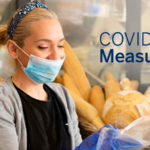
According to estimates by the Economic Commission for Latin America and the Caribbean (ECLAC) in its report, ‘The social challenge in the days of COVID-19’, the coronavirus pandemic crisis will lead more than 28 million people to poverty, representing four percentage points more than 2019. In total, close to 215 million people in Latin America — more than 35 percent of the population — will be left in poverty in 2020; 83 million of whom will suffer extreme poverty.
According to the UN agency, the countries that will be most affected by increased poverty will be the three major economies in the region: Brazil, Mexico, and Argentina, where the pandemic will have a significant negative impact on economic activity and employment, and consequently income loss.
Faced with the COVID-19 situation, BBVA established a remote-working plan with the principal aim of protecting employees and customers across its footprint. In addition to facilitating teleworking for a majority of its employees, the bank used digital channels to bolster its services and invited its customers to do their banking from the safety of their homes, conducting transactions over the internet or via the mobile banking application.
Furthermore, BBVA’s units across Latin America have offered their customers various support alternatives to help them ride out the crisis.
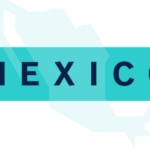
BBVA offers its customers (consumer and business) up to a four-month extension on various products in its loan portfolio.
The bank has also provided its customers a fixed payment plan in order to minimize monthly payments due on their credit cards and to offer support for healthcare and pharmaceutical expenses, with six months interest free when they use their credit card to pay.
The bank has suspended commission payments at its point of sale terminals, in support of low-invoicing businesses; and for larger business clients it will offer different support plans tailored appropriately to each situation.
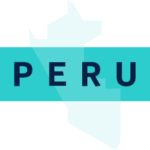
BBVA’s Peruvian unit has put in place a line of credit totaling 2.5 billion soles (€640 million) to support SMEs. In addition, it announced measures to make loan payments more flexible with deferrals of up to 90 days.
In addition:
- BBVA permits the consolidation of consumer loans and/or credit card debt by extending the payment terms and reducing minimum payments by up to 40 percent.
- BBVA offers the financial system’s lowest interest rates on the auction of funds from the Peruvian government’s “Reactiva Peru” program (0.5 percent and 1 percent), which are aimed at supporting companies affected by the coronavirus.

Containment measures to prevent the spread of COVID-19 have caused a reduction in many peoples’ incomes. In response, BBVA Peru has prepared various support measures that have given more than 200,000 people the opportunity to restructure their financial obligations without impacting their credit rating. BBVA in Peru has rescheduled more than 225,000 loans, equivalent to approximately 20 billion soles, which represents 31 percent of the bank's total portfolio.
Relief provided in Peru:
BBVA Peru is one of more than 70 private companies that has contributed to the cause of raising aid in response to the coronavirus pandemic. The bank donated food packages to people suffering as a result of the pandemic. Each package can feed four people for one week.
To date, more than 3,000 tons of humanitarian aid have been administered by the business community. Among the population that benefits, there are people with severe disabilities; families displaced by natural disasters or terrorism; the elderly; and migrants suffering poverty, who, to make matters worse, are not entitled to the government's social programs.
The assembly of food packages is undertaken in coordination with the National Institute of Civil Defense (INDECI) and with the assistance of the Peruvian armed forces.
The donation was made in coordination with Hombro a Hombro (‘Shoulder to Shoulder’), an organization that manages the delivery of private sector donations in collaboration with the state in order to help the most vulnerable families.
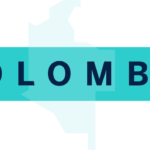
In Colombia, the bank announced a freeze on payment installments for up to six months with a grace period for the principal and interest payments on mortgages, consumer loans, business loans, and orders of payment.
Special lines of corporate financing were also created, for a total of 300 billion pesos (some €70 million). In addition, a commitment was made to deliver 10,000 units of biosafety equipment for medical personnel at more than 50 hospitals in Bogota and 40 other Colombian cities. The equipment includes face masks, face shields, protective eyewear, gloves, and fluid resistant gowns.

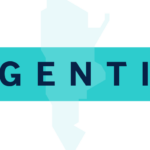
BBVA Argentina gave loans totaling 20 billion pesos (some €267 million) to 10,577 micro, small, and medium sized companies for salary payments and working capital, at a nominal interest rate of 24% (APR), thereby exceeding the total quota designated for the sector.
The bank also refinanced unpaid credit card debt over nine installments. Furthermore, BBVA customers can continue using ATMs without incurring fees or commissions in any of the transactions conducted, including deposits, withdrawals, queries, and more. This measure has been extended through September 30.
Other advantageous measures have been rolled out that have a direct impact on UVA (unit of purchasing value) mortgages and on all types of financing, with the exception of credit cards. BBVA customers who have taken out any kind of loan will not see punitive interest rates on unpaid installments. Thus, instalment payments due between April 1 and September 30, 2020 for any lending product (mortgages, and secured and personal loans) including those updated for UVA, will be added to the end of the loan’s term.
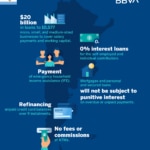
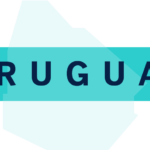
In Uruguay, consumer loan and car loan payments can be deferred by 90 days while mortgage payments and loans to micro-enterprises and SMEs have an 180 day grace period. In Paraguay, customers with credit cards, personal loans, loans to SMEs, and mortgages were also able to defer payments.
In 2019, Euromoney magazine recognized BBVA as the world’s best bank in terms of financial inclusion and the best bank in Latin America for sustainable finance. Global Finance selected BBVA as the best bank in Latin America in 2019.